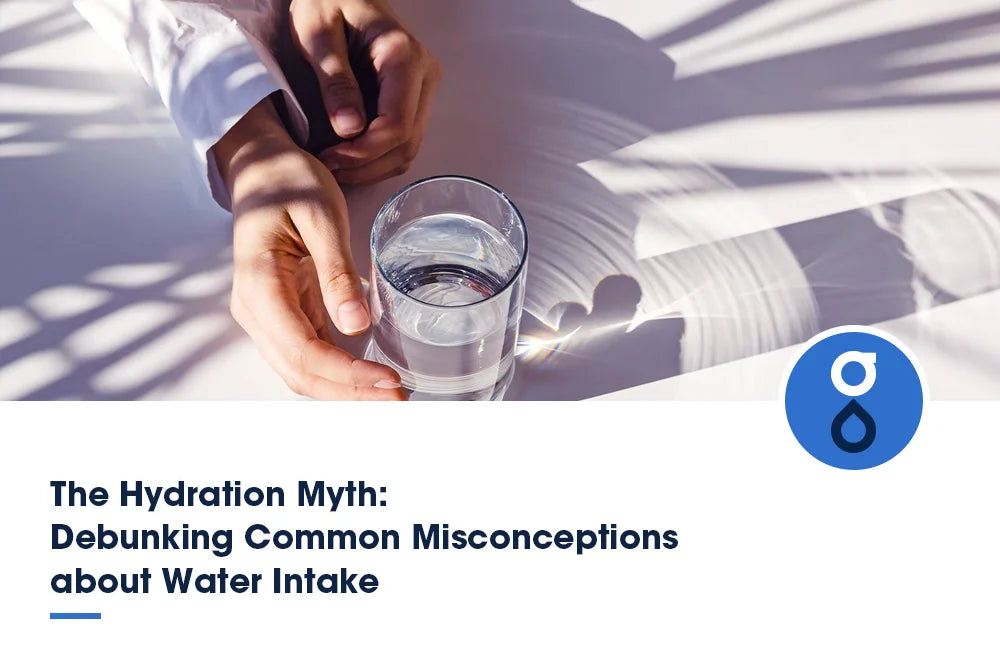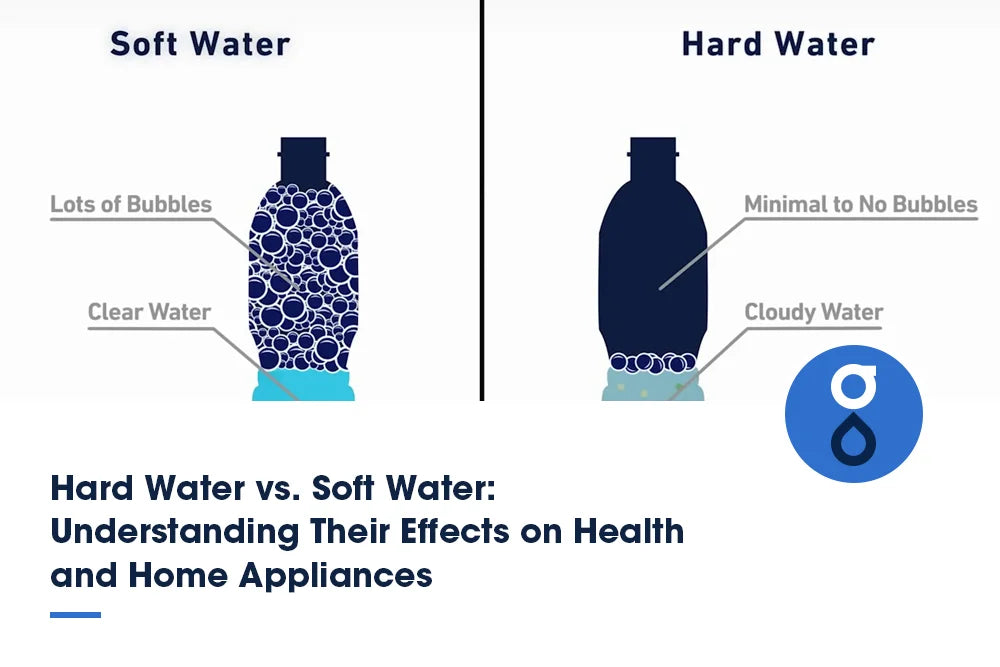Table of Contents:
Myth #1: the 8x8 rule for water intake
Myth #2: Thirst is a reliable indicator of dehydration
Myth #3: All fluids, including caffeinated beverages, dehydrate the body
Myth #4: Clear urine indicates proper hydration
Myth #5: Coconut water is a superior source of hydration
Myth #6: Drinking water alone is enough to stay hydrated
Conclusion
You've likely heard the advice to drink 8 glasses of water daily, but have you ever questioned its validity? The truth about hydration may surprise you. Let's uncover the common misconceptions surrounding water intake and explore the science behind what truly keeps you hydrated and healthy.
Myth #1: the 8x8 rule for water intake

The 8x8 rule for water intake, a commonly cited guideline, originated from a mix of medical advice and general recommendations. It has evolved over time and become ingrained in popular culture despite controversies surrounding its validity.
Challenging the notion propagated by the 8x8 rule, individual hydration requirements vary significantly based on diverse factors such as activity levels, environment, and overall health status.
Due to individual differences, hydration needs can vary greatly. Factors such as age, weight, gender, and even genetics play a role in determining how much water an individual should consume daily.
Additionally, environmental factors like temperature, humidity, and altitude can impact how much fluid your body needs to stay properly hydrated. To illustrate the variability in hydration needs, consider the table below:

Myth #2: Thirst is a reliable indicator of dehydration

Although a natural mechanism, thirst may not always accurately signal when your body requires more water. While it's a common belief that thirst is a reliable indicator of dehydration, scientific evidence suggests otherwise. Thirst signals lag behind actual hydration levels, creating a potential disconnect between your body's needs and water intake.
· Hydration cues: Your body relies on various signals to indicate hydration levels, with thirst being just one of them.
· Thirst signals: Thirst is triggered when your body senses a certain level of dehydration, but it may not always align perfectly with your hydration needs.
· Body's needs: Understanding your body's requirements for water intake is crucial, as it can vary based on factors like activity level, climate, and overall health.
Some common signs of dehydration include dark urine, dry mouth, fatigue, dizziness, and decreased urine output. Please pay attention to these signals as they indicate that your body needs more fluids. To prevent dehydration, drinking water regularly throughout the day is essential, especially during hot weather or physical activity.
Additionally, consuming fruits and vegetables with high water content can contribute to your overall fluid intake. Remember that staying hydrated is vital for your overall health and well-being.
Myth #3: All fluids, including caffeinated beverages, dehydrate the body

Common misconceptions about caffeine's effect on fluid balance often lead to the belief that all fluids, including caffeinated beverages, dehydrate the body. However, the reality is more nuanced than this common belief suggests. Understanding the effects of caffeine on fluid balance is crucial in debunking hydration myths and clearing up caffeine misconceptions.
Contrary to popular belief, moderate caffeine consumption doesn't significantly dehydrate. While caffeine is a diuretic, the fluid intake from caffeinated beverages can still contribute to overall hydration levels.
Maintaining proper fluid balance is key to overall health. Caffeine can increase urine output, but this effect is typically mild and compensated for by the fluid content of the beverages consumed. It is important to separate fact from fiction regarding caffeine and hydration. By understanding the true effects of caffeine on fluid balance, individuals can make informed decisions about their beverage choices without falling prey to common misconceptions.
Myth #4: Clear urine indicates proper hydration

Contrary to popular belief, clear urine doesn't always indicate optimal hydration levels. Your urine color can actually provide valuable insights into your hydration status. While clear urine may suggest adequate hydration, it's not always the case. Understanding the correlation between urine color and hydration levels is crucial for maintaining overall health and well-being.
- Hydration levels, fitness: Urine color can be an indicator of your hydration levels, impacting your fitness performance. Dehydration can lead to decreased endurance and muscle cramps during exercise.
- Urine color, health: Dark yellow urine may signal dehydration, potentially affecting overall health. Proper hydration is vital in various bodily functions, including kidney health and toxin removal.
- Water intake, performance: Monitoring urine color can help you assess whether your water intake is sufficient for optimal performance. Inadequate fluid intake can impair cognitive function and physical abilities, hindering your overall performance.
Myth #5: Coconut water is a superior source of hydration

When examining the nutritional content of coconut water, it becomes evident that its hydration benefits may not be as superior as commonly believed. Coconut water does offer some nutritional benefits, but there may be better choices for hydration.
- Nutritional Benefits: Coconut water contains electrolytes like potassium and magnesium, which can be beneficial for replenishing minerals lost during sweating.
- Hydration Benefits: While coconut water can help with hydration, it may not be as effective as plain water in quickly rehydrating the body, especially during intense physical activity.
- Taste Preferences: Some individuals enjoy the taste of coconut water, finding it refreshing and pleasant. This makes it a preferred choice for hydration for those who dislike the taste of plain water.
Comparing coconut water to plain water for hydration reveals important distinctions in their effectiveness in replenishing bodily fluids. While coconut water contains natural electrolytes like potassium and sodium, which are beneficial for hydration, plain water remains the gold standard for staying hydrated.
Despite the electrolyte comparison, studies show that plain water is just as adequate, if not more so, at hydrating the body due to its high fluid content and quick absorption rate. The hydration benefits of coconut water can be overshadowed by its calorie and sugar content, which may not be suitable for everyone, especially those watching their sugar intake.
Myth #6: Drinking water alone is enough to stay hydrated

Simply drinking water alone may not be sufficient to ensure proper hydration throughout the day. While water is essential for staying hydrated, there are other factors to consider to maintain optimal hydration levels.
Hydration supplements can provide additional benefits by replenishing essential nutrients that may be lost through sweating or other bodily functions. Maintaining electrolyte balance is crucial for hydration. Electrolytes like sodium, potassium, and magnesium help regulate fluid balance in the body and are necessary for proper hydration.
Hydration and exercise go hand in hand. When you exercise, especially strenuously or for prolonged periods, you lose water through sweat and electrolytes. Replenishing water and electrolytes is key to staying hydrated during and after physical activity.
Incorporating these factors alongside drinking water can help you maintain optimal hydration levels and support overall well-being.
Conclusion
So, next time you hear someone preaching about the 8x8 rule or clear urine as a sign of hydration, remember that hydration isn't a one-size-fits-all approach. Listen to your body, incorporate a variety of hydrating sources, and focus on personalized hydration strategies. Stay informed, stay hydrated, and stay healthy!
















